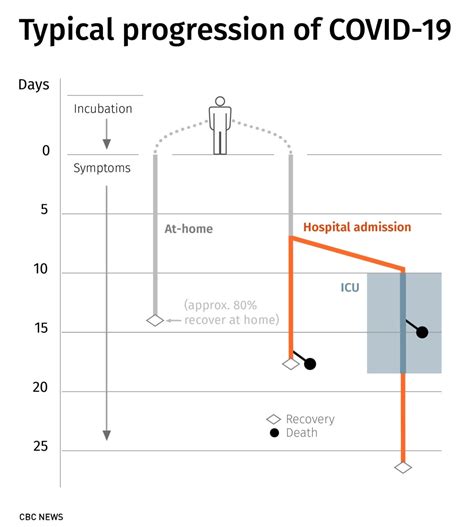How Long Does it Take for COVID-19 Symptoms to Appear?
Knowing the incubation period of COVID-19 is crucial for understanding how the virus spreads and taking appropriate precautions. This post will explore the timeframe between infection and symptom onset, helping you understand what to expect and when to seek testing.
Understanding the Incubation Period
The incubation period refers to the time between exposure to a virus (in this case, SARS-CoV-2, the virus that causes COVID-19) and the appearance of the first symptoms. For COVID-19, this period is highly variable.
The Typical Range
While it varies from person to person, the most commonly cited incubation period for COVID-19 is between 2 and 14 days. The majority of people will develop symptoms within 5 to 6 days of exposure.
Factors Influencing Incubation Time
Several factors can influence how long it takes for COVID-19 symptoms to appear:
- Viral Load: A higher viral load (the amount of virus a person is exposed to) might lead to a shorter incubation period.
- Individual Immunity: A person's overall health and immune system strength can impact the time it takes for symptoms to manifest.
- Viral Variant: Different variants of the SARS-CoV-2 virus may have slightly different incubation periods, though this difference is usually not significant.
- Age: While not definitively proven, some studies suggest a potential correlation between age and incubation time, but more research is needed.
What to Do if You've Been Exposed
If you've been in close contact with someone who has tested positive for COVID-19, it's crucial to:
- Monitor Yourself Closely: Pay close attention to your body and watch for any signs of illness.
- Practice Social Distancing: Isolate yourself from others as much as possible.
- Wear a Mask: If you need to be around others, wear a high-quality mask.
- Get Tested: If you develop symptoms, get tested immediately using a reliable method like a PCR or rapid antigen test. Even if you don't have symptoms, testing may be recommended based on your exposure level and local health guidelines.
Common COVID-19 Symptoms
It's important to remember that COVID-19 symptoms can vary widely. Some individuals may experience mild symptoms, while others may have more severe illness. Common symptoms include:
- Fever or chills
- Cough
- Shortness of breath or difficulty breathing
- Fatigue
- Muscle or body aches
- Headache
- New loss of taste or smell
- Sore throat
- Congestion or runny nose
- Nausea or vomiting
- Diarrhea
Note: The absence of symptoms doesn't guarantee you haven't been infected. You can still spread the virus even if you're asymptomatic.
When to Seek Medical Attention
Seek immediate medical attention if you experience:
- Trouble breathing
- Persistent pain or pressure in the chest
- New confusion
- Inability to wake or stay awake
- Bluish lips or face
This information is for general knowledge and does not constitute medical advice. Always consult with a healthcare professional for any concerns about COVID-19 or your health. Staying informed and following public health guidelines are crucial for protecting yourself and your community.
